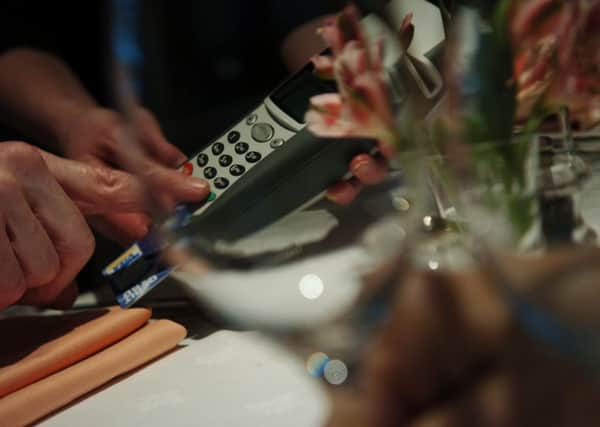Stephen Jardine: Time to take tipping off the menu


In the current climate, that seems a brave move. Tipping is a controversial subject like never before thanks to the King of New York restaurants, Danny Meyer.
Last week Meyer announced that he was raising prices and eliminating tipping in his 13 city restaurants to make sure all his staff are fairly compensated for the work they do.
Advertisement
Hide AdAdvertisement
Hide AdI’ve been lucky enough to meet the man and no-one has done more than Meyer to shape good hospitality in the United States. His book, Setting the Table, is a bible for anyone trying to establish a great restaurant.
Meyer believes it starts and ends with good people and ensuring everyone is properly rewarded is the catalyst behind his move to end America’s obsession with tipping. Where he goes, others always follow so could this spell the beginning of the end for the weird system of thanking people with money for putting food in front of you?
Back in Scotland, at least the new Edinburgh restaurant is being upfront and honest with their service charge, promising it is “shared wholly” around the entire team.
Other places are less transparent when it comes to explaining how staff are remunerated. Major chains including Las Iguanas, Giraffe and Cote Brasseries have all been in the headlines recently over the way they dip into tips to cover certain costs and charges.
Service charges directly added to the bill are still unusual in Scotland but in London it is hard to find a restaurant nowadays not adding 10, 15 or even 20 per cent to the total.
They will always say the charge is discretionary but it is a brave customer who will complain about the service and demand an amended bill.
And there lies the root of the problem. The whole business of dealing with gratuity goes completely against our national character. No-one wants to leave too much or too little; then there is the whole business of going to leave a tip and discovering you only have a £20 note in your pocket and you have to ask for change.
So why do we do it? The argument was always that it incentivised staff to deliver a great customer experience and ensured they earned a fair rate of pay for the job. In America the culture is now so ingrained, casual waiting staff are often earning more than highly trained chefs.
Advertisement
Hide AdAdvertisement
Hide AdBut why is it the customer who has to pay to ensure someone - who is already being paid - does their job properly?
In Scotland, the most common system used to deal with tips is the one approved by HMRC. It involves a member of staff called a Troncmaster being appointed to distribute tips. Even then there is often unspoken resentment between front-of-house and kitchen staff over who deserves what.
Waiting staff may be your main point of contact with the restaurant and their attitude can make or break the meal. But if the chef can’t be bothered that night or the kitchen porter doesn’t properly clean the plates, no amount of chat and charm at the table is going to compensate for that or save the evening.
The time is ripe for change. Smart restaurants will be looking to the future with profit-sharing schemes to ensure everyone is properly rewarded. My tip is that the tip has had its day.